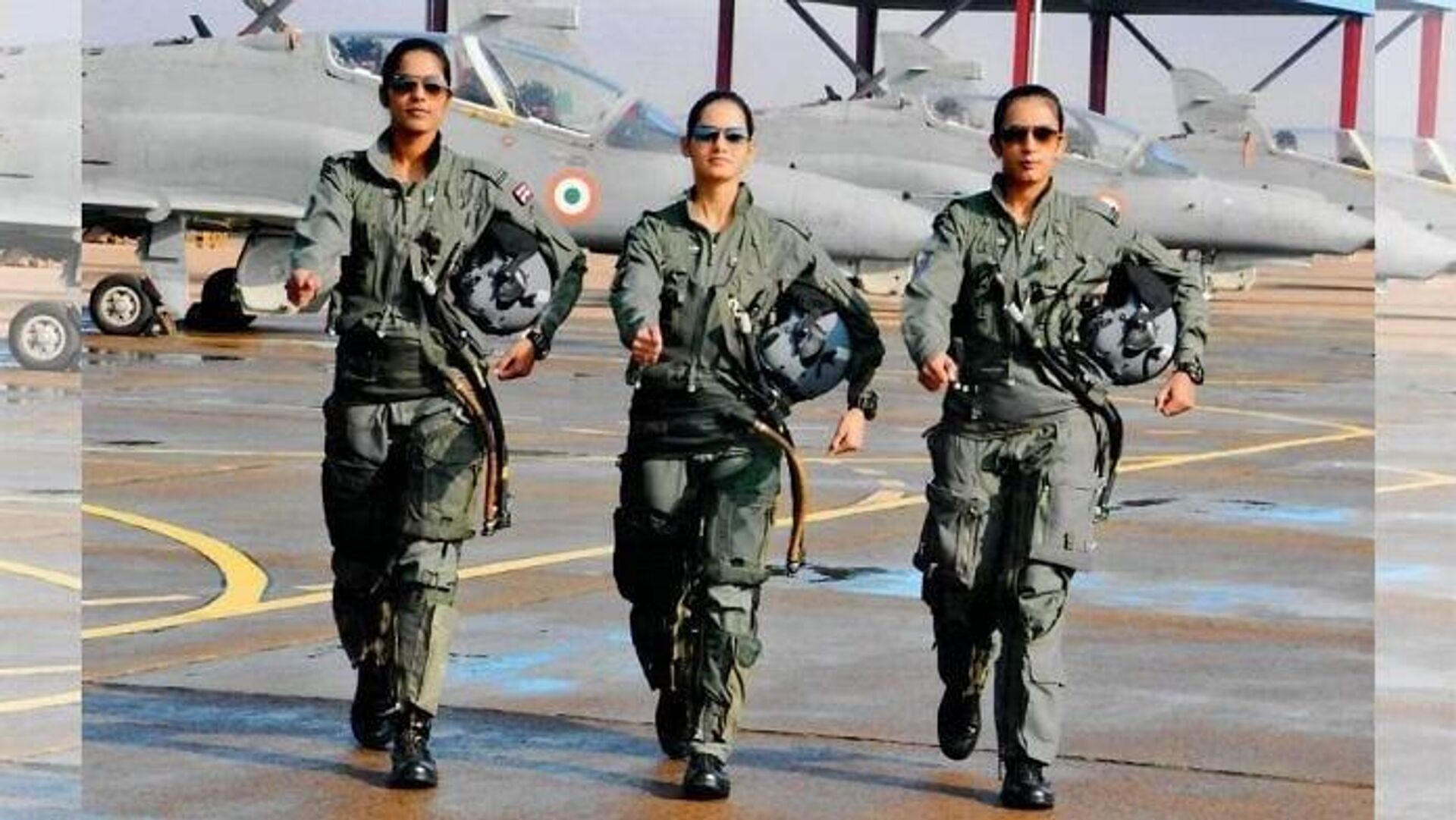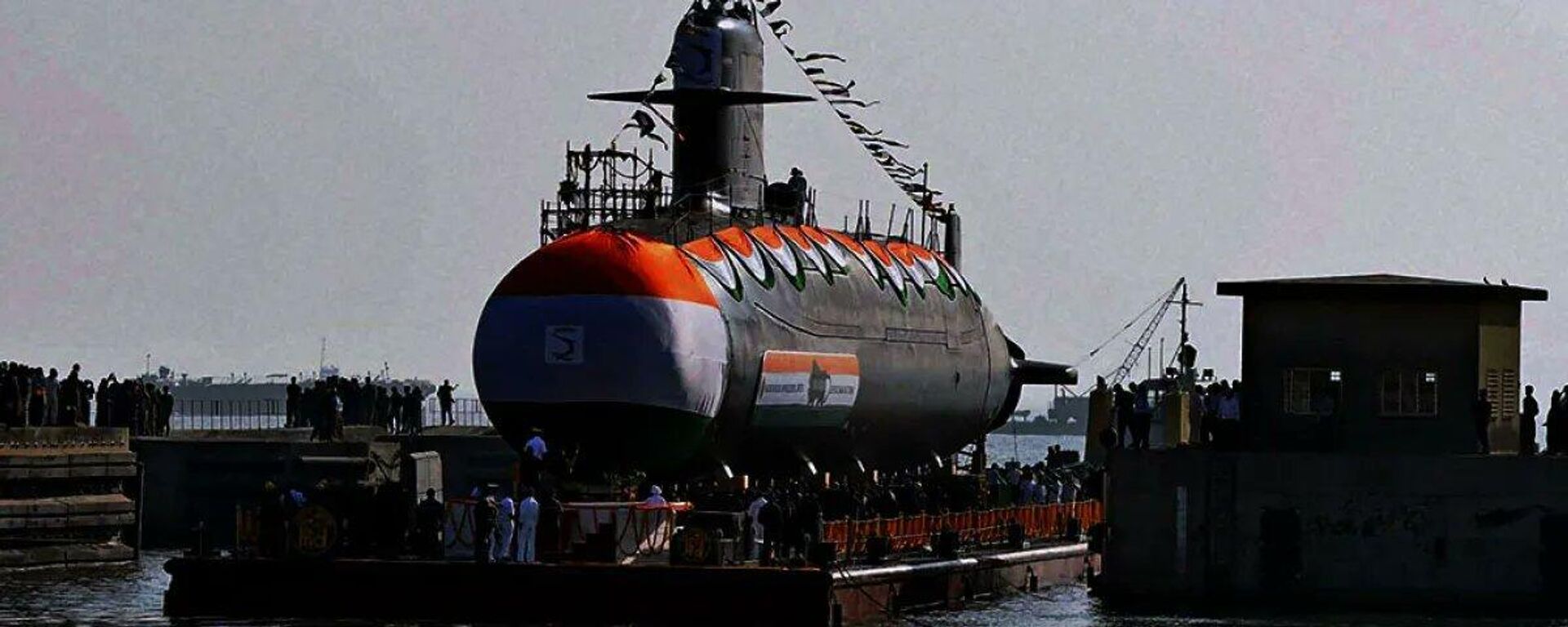https://sputniknews.in/20240920/women-bring-a-lot-of-emphatic-and-intuitive-leadership-in-the-military-8178455.html
Women Bring a Lot of Emphatic and Intuitive Leadership in the Military
Women Bring a Lot of Emphatic and Intuitive Leadership in the Military
Sputnik India
Earlier this week, Squadron Leader Mohana Singh became the first female pilot to be inducted into the Indian Air Force's (IAF) special unit that flies the... 20.09.2024, Sputnik India
2024-09-20T19:15+0530
2024-09-20T19:15+0530
2024-09-20T21:10+0530
sputnik opinion
indian air force (iaf)
lca tejas
india
assam
indian army
defense sector
ministry of defence (mod)
military exercise
military base
https://cdn1.img.sputniknews.in/img/07e8/09/14/8179991_0:0:696:392_1920x0_80_0_0_d2e2b27fb18441b6336c377ab8e39eec.jpg
Women officers are more adept at penetrating the enemy’s mindset, according to Nithi CJ, a former Indian Army officer who served in the elite Military Intelligence (MI) department. The progression of women, particularly in combat roles, has occurred at a commendable pace, Nithi told Sputnik India. Due to their battlefield competence, women are now serving in units such as the Assam Rifles, Rashtriya Rifles, Military Police, Military Intelligence, and artillery divisions of the Army, she said.In the last decade, there has been a significant rise in women taking on various roles in India's defence services, proving their capability in multiple areas — whether in junior command roles in the infantry at the company, platoon, or battalion levels or intelligence officers. This is precisely why the NDA (National Defence Academy) has been opened to women, allowing them to join the military ranks straight after school, a path previously unavailable.However, women in the Indian Armed Forces are not new, the veteran emphasised.Women in other branches of the army have been present for over three decades. In 1992, female officers became a part of the Indian Army, but it took 15 more years for their training to reach the same level as their male counterparts.In 2007 the Combined Defence Services (CDS) examination was opened for women. Before that, women were recruited through a Special Entry Scheme, and under that scheme, the females were directly selected for an interview based on their college merit.Later, the government introduced the Permanent Commission for Women, opening up command roles for females in the military.Nithi stressed the importance of understanding the parameters on which women are evaluated when joining the Army. The Army seeks 15 defined qualities in an officer, with particular emphasis on loyalty, integrity, honesty, situational awareness, and physical and mental courage.She believes that when women enter the armed forces, they bring 100 percent dedication, professionalism, and commitment – three qualities are crucial in an organisation that is the largest volunteer force in the world.Furthermore, women's compassion helps them build what is known as the officer-men relationship, a vital component of military leadership. When someone is on the battlefield or in a war-like situation, it becomes challenging to motivate their soldiers. Women naturally possess this compassion, which allows them to foster a sense of belongingness among the troops under their command, boosting the morale of the unit, battalion, and formations, Nithi suggested.Sharing an anecdote from her career in the Defence Forces, Nithi, who retired from the Army in 2020, stressed that being being a woman greatly benefited her during interrogations as a Military Intelligence officer.It is easier for women to outmanoeuvre the enemy’s mind, Nithi concluded.
https://sputniknews.in/20240904/whats-behind-indias-rising-defence-spending-8108505.html
india
assam
pakistan
kashmir valley
Sputnik India
feedback.hindi@sputniknews.com
+74956456601
MIA „Rossiya Segodnya“
2024
Pawan Atri
https://cdn1.img.sputniknews.in/img/07e6/0c/13/139630_147:0:831:684_100x100_80_0_0_8fa2b25903e7787fe6a2698552c167df.png
Pawan Atri
https://cdn1.img.sputniknews.in/img/07e6/0c/13/139630_147:0:831:684_100x100_80_0_0_8fa2b25903e7787fe6a2698552c167df.png
News
en_IN
Sputnik India
feedback.hindi@sputniknews.com
+74956456601
MIA „Rossiya Segodnya“
Sputnik India
feedback.hindi@sputniknews.com
+74956456601
MIA „Rossiya Segodnya“
Pawan Atri
https://cdn1.img.sputniknews.in/img/07e6/0c/13/139630_147:0:831:684_100x100_80_0_0_8fa2b25903e7787fe6a2698552c167df.png
indian air force (iaf), lca tejas, india, assam, indian army, defense sector, ministry of defence (mod), military exercise, military base, narendra modi, pakistan, kashmir valley
indian air force (iaf), lca tejas, india, assam, indian army, defense sector, ministry of defence (mod), military exercise, military base, narendra modi, pakistan, kashmir valley
Women Bring a Lot of Emphatic and Intuitive Leadership in the Military
19:15 20.09.2024 (Updated: 21:10 20.09.2024) Earlier this week, Squadron Leader Mohana Singh became the first female pilot to be inducted into the Indian Air Force's (IAF) special unit that flies the indigenously developed LCA Tejas combat jet. With women breaking new barriers in the military, Sputnik India analyses the positive changes they have brought to the Indian Armed Forces.
Women officers are more adept at penetrating the enemy’s mindset, according to Nithi CJ, a former Indian Army officer who served in the elite Military Intelligence (MI) department.
The progression of women, particularly in combat roles, has occurred at a commendable pace, Nithi told Sputnik India. Due to their battlefield competence, women are now serving in units such as the Assam Rifles, Rashtriya Rifles, Military Police, Military Intelligence, and artillery divisions of the Army, she said.
In the last decade, there has been a significant rise in women taking on various roles in India's defence services, proving their capability
in multiple areas — whether in junior command roles in the infantry at the company, platoon, or battalion levels or intelligence officers. This is precisely why the
NDA (National Defence Academy) has been opened to women, allowing them to join the military ranks straight after school, a path previously unavailable.
However, women in the Indian Armed Forces are not new, the veteran emphasised.
"Since the inception of the country's military, female officers have been inducted into the Medical Corps, who serve in conflict zones, carrying out tasks such as conducting surgeries on wounded soldiers amongst others," Nithi pointed out.
Women in other branches of the army have been present for over three decades. In 1992, female officers became a part of the Indian Army, but it took 15 more years for their training to reach the same level as
their male counterparts.
In 2007 the Combined Defence Services (CDS) examination was opened for women. Before that, women were recruited through a Special Entry Scheme, and under that scheme, the females were directly selected for an interview based on their college merit.
"Incidentally, I was part of the initial batches of women who took the CDS exam before joining the Officers Training Academy (OTA) in 2009. It was an important move because the moment one brings the exam pattern at par, the training is also made at par with men. As part of these reforms, the training of women was extended to 11 months, including everything that was part of the curriculum of a gentlemen officer," she noted.
Later, the government introduced the Permanent Commission for Women, opening up command roles for females in the military.
Nithi stressed the importance of understanding the parameters on which women are evaluated when joining the Army. The Army seeks
15 defined qualities in an officer, with particular emphasis on loyalty, integrity, honesty, situational awareness, and physical and mental courage.
"Women joining the Defence Forces are unconventional and are naturally inclined to break the mindset about them in society. With time, experience, and training, such women bring a lot of emphatic and intuitive leadership to the military, making the decision-making process easier for the entire hierarchy," Nithi observed.
She believes that when women enter the armed forces, they bring 100 percent dedication, professionalism, and commitment – three qualities are crucial in an organisation that is the largest volunteer force in the world.
Furthermore, women's compassion helps them build what is known as the officer-men relationship, a vital component of military leadership. When someone is on the battlefield or in a war-like situation, it becomes challenging to motivate their soldiers. Women naturally possess this compassion, which allows them to foster a
sense of belongingness among the troops under their command, boosting the morale of the unit, battalion, and formations, Nithi suggested.
Sharing an anecdote from her career in the Defence Forces, Nithi, who retired from the Army in 2020, stressed that being being a woman greatly benefited her during interrogations as a Military Intelligence officer.
"A particular individual was arrested and I had to question him. The moment I entered the room, he kind of dropped his guard. Frankly speaking, the emotional quotient helped me get so much information from him because I had enough background information about him, making it easier for me to strike up a conversation with him. Eventually, I told him that I would arrange a phone call wherein he would be able to speak to his sister. This card worked and I was able to procure a lot of vital information from him," she revealed.
It is easier for women to outmanoeuvre the enemy’s mind, Nithi concluded.



